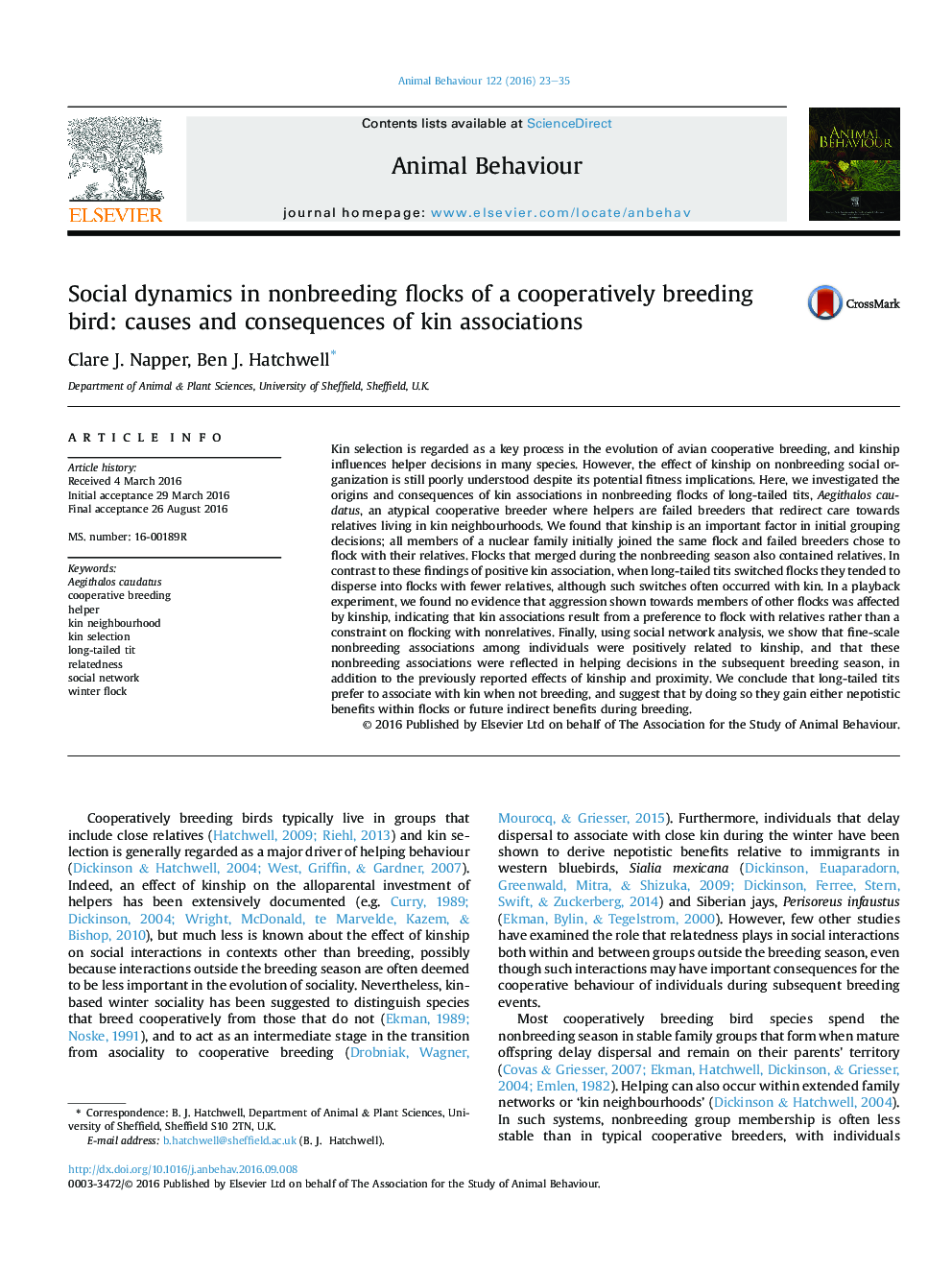| Article ID | Journal | Published Year | Pages | File Type |
|---|---|---|---|---|
| 5538369 | Animal Behaviour | 2016 | 13 Pages |
Abstract
Kin selection is regarded as a key process in the evolution of avian cooperative breeding, and kinship influences helper decisions in many species. However, the effect of kinship on nonbreeding social organization is still poorly understood despite its potential fitness implications. Here, we investigated the origins and consequences of kin associations in nonbreeding flocks of long-tailed tits, Aegithalos caudatus, an atypical cooperative breeder where helpers are failed breeders that redirect care towards relatives living in kin neighbourhoods. We found that kinship is an important factor in initial grouping decisions; all members of a nuclear family initially joined the same flock and failed breeders chose to flock with their relatives. Flocks that merged during the nonbreeding season also contained relatives. In contrast to these findings of positive kin association, when long-tailed tits switched flocks they tended to disperse into flocks with fewer relatives, although such switches often occurred with kin. In a playback experiment, we found no evidence that aggression shown towards members of other flocks was affected by kinship, indicating that kin associations result from a preference to flock with relatives rather than a constraint on flocking with nonrelatives. Finally, using social network analysis, we show that fine-scale nonbreeding associations among individuals were positively related to kinship, and that these nonbreeding associations were reflected in helping decisions in the subsequent breeding season, in addition to the previously reported effects of kinship and proximity. We conclude that long-tailed tits prefer to associate with kin when not breeding, and suggest that by doing so they gain either nepotistic benefits within flocks or future indirect benefits during breeding.
Related Topics
Life Sciences
Agricultural and Biological Sciences
Animal Science and Zoology
Authors
Clare J. Napper, Ben J. Hatchwell,
